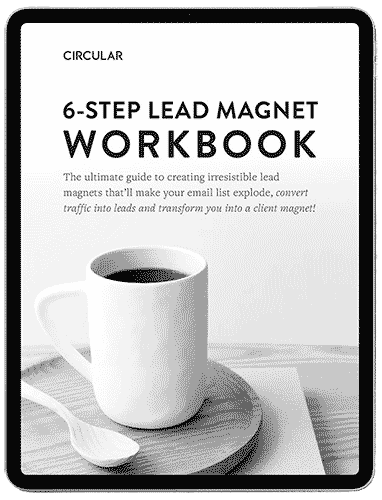Many people realize later in life that they are falling behind financially and lack a savings plan, feeling the pressure of financial uncertainty. Is this you? Without a clear strategy, financial anxiety can take over, leaving you stressed and unprepared for unexpected expenses and future goals. This uncertainty can make long-term stability seem out of reach.
As an experienced money coach, I’ve seen firsthand how small, practical steps can transform financial lives and can help you take control of your finances.
Let’s face it, money can be a tough topic, but you’re not alone. However, with a good plan, you can turn your panic into power.
Why Am I Stressed About Money All the Time?
You might be wondering, “Why am I always struggling financially?” or “Why am I stressed about money?” These questions resonate deeply, especially when it feels like you’re constantly falling behind financially. It’s a stressful, overwhelming place to be, but while it may feel like everybody else has their stuff together, a lot of people are stressed about money.
Feeling financially stuck can be caused by a bunch of different reasons. Maybe you didn’t have a clear savings plan, unexpected expenses threw you off track, or high-interest debts piled up. Whatever the cause, the anxiety of seeing bills mount while your savings stay stagnant or disappear is real and common.
But here’s the thing: acknowledging these feelings is crucial. And while it’s okay to feel stressed or overwhelmed, what’s important is recognizing that you’re not alone and that there are ways to catch up financially and even get ahead.
The key is to shift from a mindset of panic to planning. We’ll look at Jane’s situation (name changed for anonymity) and use her example to figure out what you should consider and how to improve your finances so you can stop freaking out when it comes to your money.
Case Study: “I’ve never thought about having savings…I’m starting to panic.”

These were Jane’s words. Can you relate to that? As she’s getting older, she’s concerned about her financial future and doesn’t even know where to start with savings and investing. Here is a summary of her current financial situation: Jane earns $73,000 a year. Her monthly expenses are: car ($743), college ($1500), rent ($500), debt ($900), pet supplies ($90), gas ($200), and HSA contributions ($60).
Using the Smart Assets calculator to estimate her take-home pay, I calculated that she would have about $615 left monthly. In my line of work, I often find that people have money left over that goes unaccounted for because they don’t have the right structures in place. This makes it so challenging to save money and leads to financial stress. However, having more than you need is a GREAT thing! It means Jane here can start saving and investing money, which was her initial concern.
I asked Jane some follow-up questions. I didn’t see anything accounting for food or entertainment, which she says her partner pays for. I also asked her to clarify what was included in pet stuff, which she says is cat litter and dog toys. As for the debt, she has three credit cards she wants to pay down so she’s paying $300 to each. Now let’s talk about her next steps.
How to Find Extra Money in Your Budget
Jane had already started to make coffee at home to save money instead of buying it daily. This small change can save a surprising amount of money over time. That doesn’t mean YOU have to give up your daily DD run or Starbucks habit if you don’t want to. It just means you’d have to look for other daily or weekly expenses you can reduce or eliminate.
Here are some examples:
Subscriptions and Memberships: Cancel any unused or unnecessary subscriptions. Gym memberships, streaming services, or magazine subscriptions can add up.
Dining Out: Reduce the frequency of eating out or ordering takeout. Cooking at home is often much cheaper and healthier.
Impulse Purchases: Avoid impulsive buys by waiting 24 hours before making a non-essential purchase.
Negotiate and Lower Your Bills
Sometimes, it’s as simple as asking for a better rate. Call your service providers—such as phone, internet, and insurance companies—and inquire about discounts or cheaper plans. Jane didn’t mention this, but it’s a great strategy to adopt.
Grocery Shopping: Plan your meals and make a shopping list to avoid buying items you don’t need. Look for sales and use coupons when possible.
Bulk Purchases: Buy non-perishable items in bulk to save money over time. Just make sure you have the storage space.
Generic Brands: Opt for store-brand products instead of name brands. They’re often just as good but significantly cheaper.
Reduce Transportation Costs
For Jane, the car payment is a significant expense. While she can’t eliminate it yet, she can look at other ways to save on transportation:
- Carpooling: Share rides to work or events to cut down on fuel costs.
- Public Transportation: Use public transit where possible.
- Maintenance: Regular maintenance can prevent costly repairs down the line.
Mindful Spending on Pets
Jane spends $90 monthly on pet supplies. She wisely buys heavy-duty toys for her dog to prevent damage to furniture, which is a smart way to avoid higher costs in the long run. If you have pets, consider these tips:
- Bulk Buying: Purchase pet food and supplies in bulk.
- DIY Toys: Make homemade toys from safe household items. Pets either play with the same toys forever or destroy them rather quickly. Either way, keeping these costs down is helpful.
Use Free or Low-Cost Entertainment
Entertainment doesn’t have to be expensive. Look for free or low-cost activities such as community events, outdoor activities, or streaming free content. Libraries often offer free book rentals and even digital content like movies and e-books.
Set a Budget for Extras
Allow yourself a small budget for non-essential purchases to avoid feeling deprived. Jane found success by making small changes like home-brewing coffee, which helped her feel more in control without drastic lifestyle cuts.
What will you cut from your expenses so you can do more of what you want with your money?
Where Should Your Extra Money Go?
Once you’ve managed to cut costs and find extra money in your budget, the next step is to be intentional with these savings. Let’s look at how Jane and you can put that extra money to good use by building an emergency fund and creating sinking funds for future expenses.
Building an Emergency Fund
An emergency fund is your financial safety net, designed to cover unexpected expenses such as medical emergencies, car repairs, or sudden job loss.
Here’s how to get started:
- Set a Goal: Aim to save 3-6 months’ worth of living expenses. For Jane, this could mean setting aside enough to cover her rent, utilities, and essential bills.
- Automate Your Savings: Set up automatic transfers to a high-yield savings account (HYSA). This ensures you consistently save without having to think about it. As mentioned, accounts like Marcus or Ally are good options.
- Start Small: Begin with a manageable amount, like $50 or $100 per month, and increase it as your budget allows. Consistency is key.
Jane could allocate some of her extra $600+ each month to build this fund. Even $200 a month would accumulate quickly, providing a solid buffer against financial surprises.
Creating Sinking Funds
Sinking funds are savings set aside for specific, anticipated expenses. They help you manage costs that aren’t part of your regular monthly budget.
Here’s how to create and use sinking funds effectively:
- Identify Upcoming Expenses: Think about future costs like car maintenance, vacations, routine vet visits, and annual insurance premiums. For Jane, setting aside money for these categories can prevent future stress.
- Set Clear Savings Targets: Determine how much you need to save for each category. For example, if you expect to spend $600 on car maintenance over the year, save $50 a month.
- Use Multiple Accounts or Sub-Accounts: Some banks allow you to create sub-accounts (like Ally’s “buckets”), making it easier to allocate money for different purposes. This keeps your savings organized and goal-oriented.
- Regular Contributions: Consistently contribute to your sinking funds. Even small amounts add up over time and ensure you’re prepared for these expenses.
For Jane, after contributing to her emergency fund, she could divide the remaining extra money among her sinking funds. For instance, $100 monthly for car maintenance, $50 for vet visits, and $100 for an upcoming trip.
Benefits of Intentional Savings
By being intentional with your extra money, you create a sense of control and preparedness. Here are the key benefits:
- Financial Security: An emergency fund provides peace of mind, knowing you can handle unexpected expenses without going into debt.
- Stress Reduction: Having sinking funds means you’re not caught off guard by annual or irregular expenses.
- Goal Achievement: Whether it’s a vacation, a new gadget, or home improvements, sinking funds help you save up for these goals without straining your monthly budget.
Intentional saving changes financial anxiety into confidence. Start small, stay consistent, and watch your financial health improve. By following these steps, you’ll be well on your way to catching up financially and getting ahead.
From Financial Panic into Empowerment
Jane’s journey is a powerful example of how intentional actions can lead to financial empowerment. By taking a realistic look at her income and expenses, she could start cutting unnecessary costs and find extra money in her budget. With this newfound financial space, she can begin building an emergency fund and creating sinking funds for future expenses.
You have the power to do the same. Start small, be consistent, and prioritize your financial goals. Every step you take brings you closer to financial stability and peace of mind. Remember, it’s not about perfection but progress. By being proactive and intentional, you can improve your financial situation and build a secure future. You can start right now. Go!


One Response